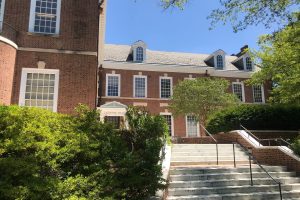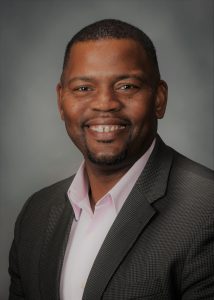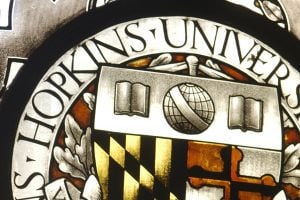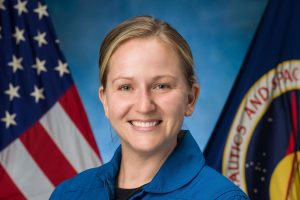
Dr. Charles Johnson-Bey has experience leveraging the intersection of technology, strategy, and business to create value and new opportunities. His expertise has spanned the commercial industry, the defense industry, and academia.
Currently, he works for Lockheed Martin Corporation as the Director of Cyber Innovations, responsible for galvanizing cyber resources across the business, helping make it a world class thought leader for cyber talent, technology and strategy. He leads the maturation and adoption of emerging cyber technologies, processes, and tools to that provide competitive advantage to the business. Prior to joining Lockheed Martin, Dr. Johnson-Bey served in a variety of engineering positions at Motorola Corporate Research Labs, Corning Incorporated Science & Technology, and as a professor of Electrical & Computer Engineering at Morgan State University.
Dr. Johnson-Bey holds a BS degree in Electrical & Computer Engineering from Johns Hopkins University and received his Masters and Ph.D. degrees in Electrical Engineering from the University of Delaware. He serves on the Whiting School of Engineering Advisory Board and the Electrical and Computer Engineering Advisory Board at Johns Hopkins.
Q&A
What made you choose Johns Hopkins?
I chose Hopkins because I could play football and study Electrical & Computer Engineering at one of the most prestigious universities in the world. I vividly remember meeting the football coach, Jerry Pfeifer, and talking with him about playing football for Hopkins. I also remember interviewing with both the Director of Admissions, Jerome Schnydman, and the Deputy Director of Admissions, India (Lowres) deLanda. I am still very close friends with Jerome and India to this very day.
Do you have any memories that stand out from the classroom or from the lab?
I remember the Signals & Systems lecture when I first heard of the Fourier Transform. I had absolutely no idea what Professor Wilson Rugh was talking about! I remember he was so excited about it and all the while I was thinking about doughnuts like Homer Simpson. It was at that point when I stepped my studying into high gear. If you didn’t see me on the football field practicing or playing, I was in the Eisenhower Library or The Hut finding references to understand what the fuss about Transforms was all about.
Do you have any advice for aspiring engineers?
The best engineering students understand that approximately 60% of their learning comes from the classroom and the other 40% from their experience activities such as personal side projects, internships, research, and independent self-study. The quality of the 40% will successfully distinguish one student from another when applying for opportunities such as graduate schools, industry positions, scholarships, etc. My advice is to spend the extra time to increase the quality of learning experiences outside of the classroom.
Where are you working now? How did you get involved in this line of work?
 Currently, I work for Lockheed Martin Corporation. As the Director of Engineering and Technology for Cyber Innovations, I am responsible for galvanizing the cyber resources across the business to be the world class thought leaders for cyber talent, technology and strategy. I lead the maturation and adoption of emerging cyber technologies, processes, and tools to provide competitive advantage to the business.
Currently, I work for Lockheed Martin Corporation. As the Director of Engineering and Technology for Cyber Innovations, I am responsible for galvanizing the cyber resources across the business to be the world class thought leaders for cyber talent, technology and strategy. I lead the maturation and adoption of emerging cyber technologies, processes, and tools to provide competitive advantage to the business.
I got involved in this line of work because Cyber is so exciting, nebulous and technically challenging right now. Earlier this year, I gave a presentation at the TechConnect World Innovation Conference on the Future of Cyber Science. I talked about how the near future will allow Cyber engineering to build new solutions that aren’t mired in “Us versus Them” but is used for the betterment of society. These solutions may take the form of new quantum-based data structures, new approaches to biologic science analytics, and new ways to connect people and their devices.
As an alumnus, you serve as an active advocate from Hopkins Engineering in a number of ways. Why was it particularly important to you that Lockheed Martin support initiatives in the Whiting School’s STEM outreach efforts, especially those in Baltimore City?
The community’s economic and social well-being, as well as that of our nation, depend on developing generations of students who are fluent in the language of the 21st century—namely, the skills and knowledge of science, technology, engineering, and math. We have to start early, and we have to start with the students in our own community. It is important that Lockheed Martin support initiatives in the Whiting School’s STEM outreach efforts because it directly addresses the need to develop the best and brightest from all the playgrounds in the United States. As a graduate of Baltimore Polytechnic Institute, a 135 year old public engineering high school in Baltimore City, I have personally benefited from outreach and advocacy. I will continue to support these initiatives.


